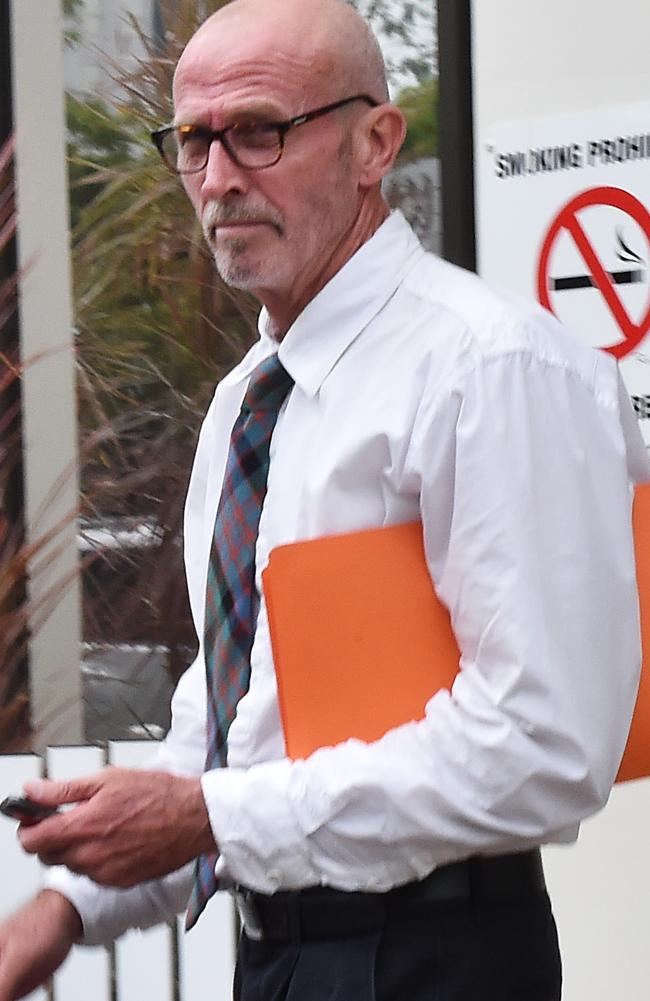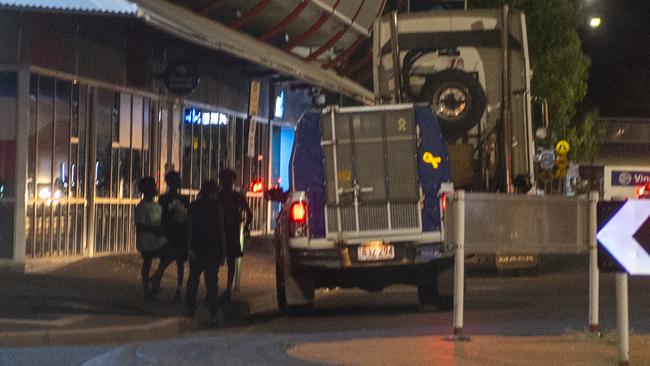NT youth crime: Why Youth Justice Court judge dismissed cases against two 12-year-olds
Two recent decisions by the managing judge of the Youth Justice Court have given Territorians insight as to how the youth justice sausage is made, highlighting the little-understood principle of doli incapax.

Police & Courts
Don't miss out on the headlines from Police & Courts. Followed categories will be added to My News.
Two recent decisions by Northern Territory Local Court judges, dismissing dozens of criminal charges against two 12-year-olds, have given Territorians insight as to how the youth justice sausage is made, highlighting the little-understood principle of doli incapax.
In the NT, as in other Australian jurisdictions, the common law principle of doli incapax – ‘incapable of wrong’ – means children aged 10 (12 in the NT) to 13 can only be found guilty of offending if the prosecution proves beyond reasonable doubt the child knew what they did was seriously wrong as a matter of morality.
In the recent cases of Police v TV and Police v TW, Judge Greg MacDonald, managing judge of the Youth Justice Court, found the two children, both aged 12 and charged each with dozens of offences, did not have the requisite knowledge.
In Police v TW, handed down on February 16, the court heard the child defendant was charged with nine offences.
They consisted primarily of assault, burglary, unlawful use of a motor vehicle, theft, stealing and trespass charges.

The charges were TW’s first formal interactions with the youth justice system.
Whether TW could be found criminally responsible was the substantive issue to be determined by Judge MacDonald.
Judge MacDonald said more than just the seriousness of the alleged offending was required for the prosecution to prove the child’s state of mind.
It also required consideration of their “age, maturity, cognitive and social development, education, personal experience and previous interactions with the justice system, their family and formative environment, and social and cultural background”.
The court heard the youth had a prejudicial upbringing, first coming to the attention of child protection officers at the age of six months.
Between then and March 2023, there were 52 notifications of neglect and inadequate supervision.
TW was a troubled student at school, exhibiting a variety of anti-social behaviours including damaging property, fighting with other students, and stealing food from the tuckshop, leading at times to periods of suspension.
In an email to the court, TW’s primary school principal said the child defendant “has grown up watching his brothers get into trouble with the law”.
“Whilst I firmly believe that he knows right from wrong I also believe he sees this lifestyle as a ‘way of life’ as that is what he has been exposed to from a very young age,” the principal stated.
Department of Education records, and other reports, tendered to the court led Judge MacDonald to conclude TW “had a particularly difficult and traumatic upbringing,” his education was “sporadic and deficient,” and impairment “on more than one level” could be inferred.

“It is difficult to conclude anything other than that TW almost certainly has an impoverished, incomplete or adulterated moral code,” Judge MacDonald said.
On this basis, he found the prosecution had not proven beyond reasonable doubt TW knew his conduct was seriously wrong as a matter of morality, with all charges dismissed.
On February 9, Judge MacDonald came to a similar conclusion in the case of Police v TV, who was facing charges of burglary, unlawful use of a motor vehicle, theft and trespass.
Like TW, they were TV’s first formal interaction with the youth justice system.
Department of Education records showed TV had “reasonable” school attendance until August 2019 of between 60–70 per cent, but after this point, attendance plummeted to 15 per cent by the start of 2023.
The records showed TV “presented with some very significant challenges and limitations, particularly in areas of self-regulation and control, and an incapacity to focus and concentrate”, which Judge MacDonald concluded was substantially driven by a diagnosis of ADHD.
In the absence of evidence other than the prosecution asking him to “draw inferences from the documentary evidence,” Judge MacDonald found it had not been proven beyond reasonable doubt that TV knew his conduct was wrong, and dismissed the charges.





